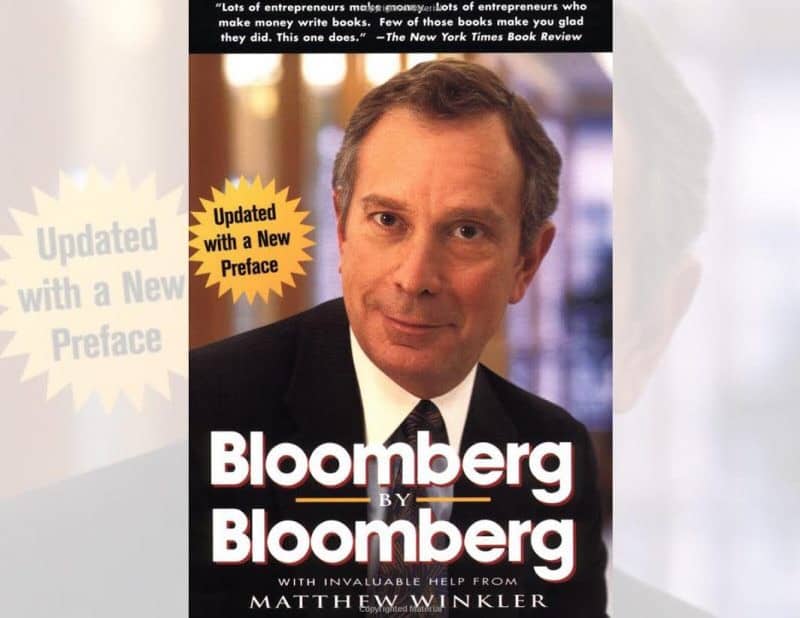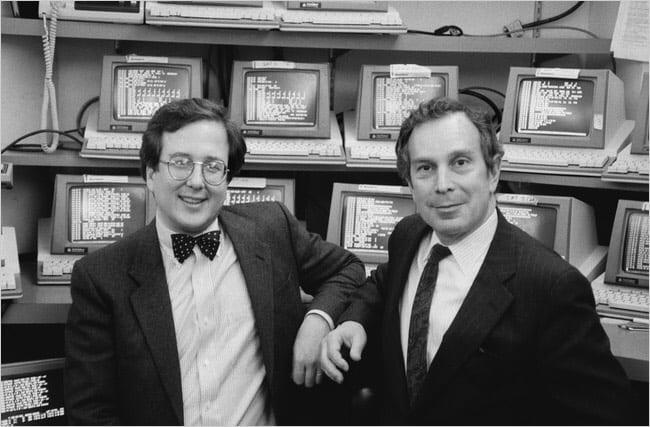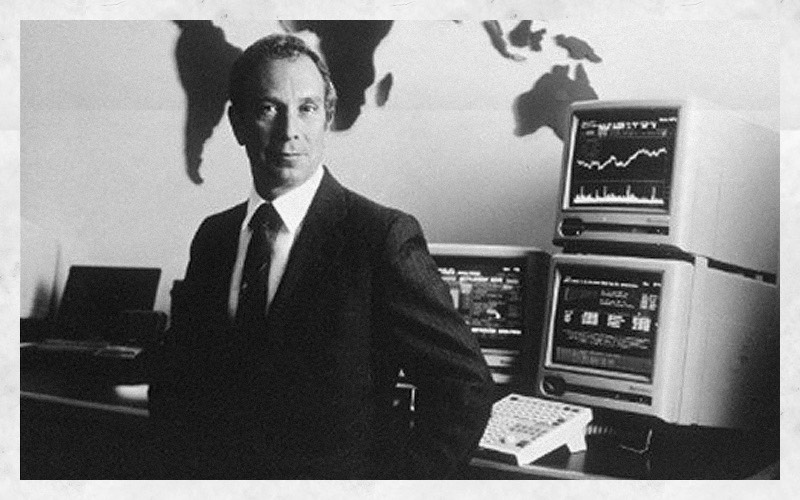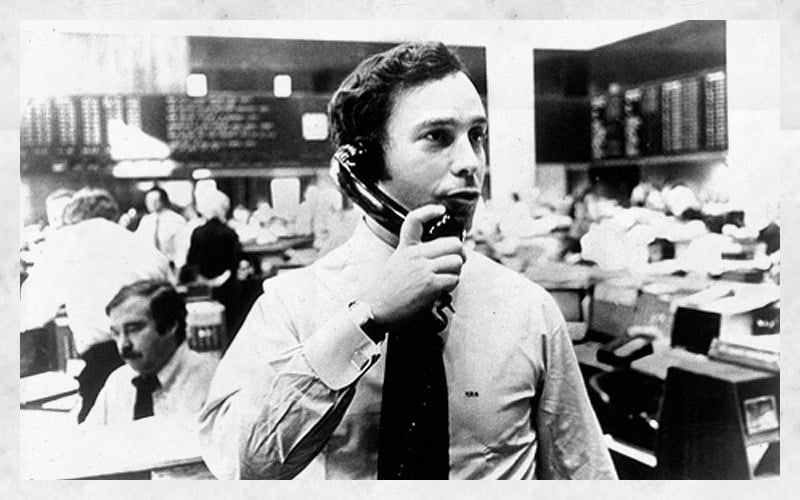Last updated: January 18, 2023
I’m sharing the best parts from Michael Bloomberg’s book, Bloomberg on Bloomberg, so you don’t have to read it. (It was a little boring.)

Quick overview:
The Bloomberg terminal was introduced in 1982 and the first customer was Merrill Lynch. It was a custom PC, like an IBM-compatible unit which ran their own special software and had custom private network access. Bloomberg company then provided news and analysis over the network. The device was leased to companies at a cost of $1,000 per unit per month and many companies bought dozens or hundreds of the terminals.
I really respect Michael Bloomberg as a business person and philanthropist. These were some passages I highlighted.
Highlighted passages
Assume all are direct quotes from Bloomberg
- Great financial success comes from starting businesses with concrete products in the real world, building jobs, creating value, and helping people.
- Woody Allen one said that 80 percent of life is just showing up. I believe that.
- To succeed, you must string together many small incremental advances – rather than count on hitting the lottery jackpot once.
- We think timely, accurate news stories that are well researched and well written will be in demand for a long time. Technology will continuously revolutionize distribution. But our product is content. It remains consistent.
- Typical company politics elsewhere stifle most free-thinking employees and discourage risk taking.
- If a concept is flawed, the blame and pain rest with me. The credit for whatever’s right goes to them.
- Without the challenge of the new, employees’ minds and spirits atrophy. Work devolves from fun to drudgerey. Without growth, no new opportunities are created, and employees who work hard to get a promotion have no place to go.
- My salary is equal to the lowest-paid full-time employee we have. Everything else I get is from my share of the firm’s earning (and income tax regulations encourage me to reinvest most of that in research and development). I have the incentive the other stockholders and employees want me to have: to maximize the company’s long-term value.

On long-term planning
He’s a scrappy entrepreneur, to the bone. Dislike for planning and big-company thinking pervades in the book
- Don’t devise a Five-Year Plan or a Great Leap Forward. Central planning didn’t work for Stalin or Mao, and it won’t work for an entrepreneur either.
- Planning has its place; the actual thought process sometimes leads to great new ideas. But you can only accomplish what’s possible when you get there.
- Consider banks and venture capitalists your worst enemies. They create doubt in entrepreneurs’ minds with their insistence on detailed game plans before they lend. They want five-year projections in a world that makes six-month forward planning difficult, even for stable and mature businesses.
- Public companies must have specific goals and declare exactly where they’ll wind up, or the securities analysts have a field day, and the investors, heart attacks. If public companies change what they’re trying in midstream, everyone panics. In a private company like Bloomberg, the analysis don’t ask, and as to the fact that we didn’t know exactly where we’re going – so what? Neither did Columbus. The truth of the matter was that we were moving forward.
- As a true capitalist, I’ve always believed in the markets’ (rather than central planners’) ability to make efficient selections.
On being a workaholic
In my Strategic Coach workshops, we’re constantly reminded to “take time off” and step away from the business. Workaholics are commonly derided in today’s culture for fear of getting burned out. So I’m interested to save and document ultra-successful individuals who go against the current, although they are the exception and not the rule
- The more you work, the better you do. It’s that simple.
- Work was, is, and always will be a very big part of my life. I love it. Even today, after toiling for thirty years, I wake up looking forward to practicing my profession, creating something, competing against the best, having comradeship, receiving the psychic compensation that money can’t buy.
- I still think the perfect day is one where I’m hopelessly over scheduled. Jog early in the morning and get to work by 7:00 A.M.; a series of rushed meetings; phone call after phone call; fifty or more voice messages and the same number of emails demanding a reply; a hurried business lunch between myriad stand-up conferences to force firm personnel, financial, and policy problems; perhaps give an interview to some foreign newspaper where we get needed publicity; often make an image-building speech at some local conference in person or by satellite video-conferencing to the other side of the world’ constantly welcome visiting clients; an early dinner with customers or a group of employees; followed by a second one with friends (where I actually get a chance to stop talking and eat); fall into bed, exhausted but satisfied with the day’s accomplishments. That’s the best weekday one could ever have!

Starting his business
- Those were the best days, the first few years in the early 1980s. We all were involved in every aspect of our company… I used a screwdriver as much as a pencil.
- We would have had a much tougher time had we entered an industry that had lots of small, scrappy competitors. But we went against giants, and giants are usually easy to beat.
- In most of our new ventures, … we don’t appoint a manager at the beginning. We simply throw everyone interested into the deep end of the pool, as it were, and stand back. It becomes obvious very quickly who the best “swimmers” are. We just watch who people go to for help and advice. And later, when we formalize a management appointment, no one’s ever surprised.
- Letting them define the rules is a sure way to come in second. (In regards to competitors)

Summary
A very successful business and a solid entrepreneur, but not a great book. A better book by an entrepreneur: see Shoe Dog, about the founding of Nike; or the book by Sam Zell: Am I being too subtle?. I’m guessing it was ghost-written. A lot of the book seemed… just boring. I’d love to read an updated Bloomberg biography.
